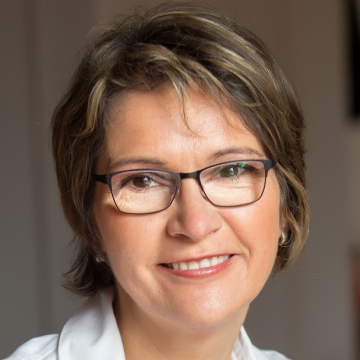Katalin Lőrincz is an associate professor at Tourism Department and the Head of Business Institute, University of Pannonia. Besides lecturing spatial-based modules (Tourism Geography, International Tourism Geography, Cultural Tourism), her research interest is focusing on urban and cultural tourism in Hungary, the role of destination management organizations and the linkage between tourism and sustainable development. She maintains contacts with both colleagues from academics and professionals of tourism/regional development sector.
She was invited to various international universities in order to teach as an short-time lecturer in Erasmus program (University of Lapland, University of Lisbon, University of Handlowa, University of Derby). Furhtermore various consultant activities (tourism strategies, product development, tourism marketing) and international conference attendance she is working as a KRAFT-Point coordinator of Veszprém. In 2015 she worked as a fellow-researcher at New Central Europe II program, Kőszeg, with a special research, entitled Sustainable Tourism in Historic Towns – Kőszeg Case Study.
Research at iASK
Cities and towns (urban destinations) are the dominant geographical focus of business and leisure travel, and urban places everywhere are regenerating and reinventing themselves so as to attract visitors, students and investment. The growing interest in sustainable business models (new governance forms such as cooperatives, public private partnerships, or social businesses) help the long-term positive impacts of the tourism sector in urban destinations (Destination Management Organisation, community/residents involvement).
The importance of the research entitled ‘Sustainable Business Models in Urban Destinations: Approaching the KRAFT Concept’ deals with the socio-cultural dimension of sustainability (e.g., local government, community, residents and students) and the sustainable business models in tourism sector and also gives direct contribution to the KRAFT Index measurement through the case study of Veszprém.
The research methology is divided into the following parts:
- The secondary research consists of a broader literature review of international and national publications in associated with sustainable planning and management in urban destinations, different forms of sustainable business models (cooperation, public private partnership)
- A comparative analysis – based on six in-depth interviews – of selected Central/Eastern European cities participated in European Capital of Culture programme. This analysis focus on the socio-cultural dimensions of sustainability.
- The primary field research questions and methods contibutes the KRAFT Index measurement of Veszprém, as a member of Alliance Pannon Cities. The primary field research includes two pillars: an online questionnaire survey among residents and stakeholders (sample 500) and 6 focus group discussions in Veszprém.
